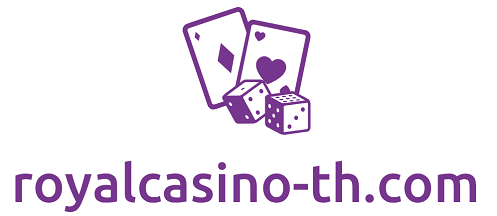In the dynamic world of online poker, we constantly navigate through a sea of strategies, seeking that elusive edge to tip the scales in our favor.
Our Journey:
We embark on a journey to master online poker strategies suitable for every player level, from the curious novice to the seasoned pro. As fellow enthusiasts, we understand the thrill of a well-played hand and the satisfaction of reading an opponent just right.
Our Collective Aim:
- Delve into Nuances: Explore tactics that can enhance our skills and elevate our gameplay.
- Share Insights and Experiences: Build a comprehensive guide to boost our confidence at the virtual tables.
- Enrich Understanding: Deepen our grasp of poker’s intricate layers.
Join us as we unravel the strategies that promise to transform our online poker experience, one hand at a time.
Understanding Poker Fundamentals
To master online poker, we need to grasp the essential rules and principles that govern the game. Understanding poker fundamentals is our first step towards joining a community of skilled players and sharing in their successes.
We’re not just playing cards; we’re engaging in a strategic battle that requires knowledge and intuition.
Key elements to focus on include:
- Recognizing hand rankings
- Knowing the value of each card combination
- Familiarizing ourselves with terms like the flop, turn, and river, which are integral to the game’s flow
Poker is a game of skill, where patience and observation are key. It’s important for us to stay alert to the patterns in our opponents’ bets and actions. By doing so, we can make informed decisions that increase our chances of winning.
Together, as we build our understanding of these fundamentals, we’ll strengthen our bond with fellow players and enhance our online poker experience.
Developing Solid Pre-Flop Strategies
Before the flop, establishing a strong game plan is crucial. This plan should consider three key aspects: our position, hand strength, and the tendencies of our opponents.
Position Analysis:
- Early positions require tighter play due to the disadvantage of acting first.
- Late positions offer more flexibility and the opportunity to play more aggressively.
Hand Strength Assessment:
- Premium Hands: Play hands like pocket aces or kings assertively to maximize potential gains.
- Speculative Hands: Approach hands like suited connectors with caution, evaluating the context and potential risks.
Opponent Tendencies:
- Recognize patterns in opponents’ play.
- Adjust strategies accordingly, folding when necessary and seizing opportunities as they arise.
Adaptability and Strategic Thinking:
Online poker thrives on adaptability. By refining our pre-flop tactics, we not only make confident decisions but also strengthen our sense of belonging within the online poker community.
Together, we can ensure our pre-flop strategy becomes the cornerstone of our success at the virtual table.
Mastering Post-Flop Decision Making
Navigating the post-flop phase requires sharp decision-making skills as we assess the board texture, our hand strength, and opponents’ actions to optimize our play. As a community of online poker enthusiasts, we know that each decision could be the difference between building a solid stack or watching our chips dwindle.
Key Considerations in Post-Flop Play:
-
Examine the Board Texture:
- Dry boards often lead to different strategies than wet ones.
-
Evaluate Hand Strength:
- Compare your hand’s strength against potential draws and made hands.
- Consider not just absolute strength but also relative to the board and our opponents’ possible holdings.
-
Interpret Opponents’ Actions:
- Determine if they are playing aggressively or conservatively.
- Use this information to decide whether to bet, call, or fold.
Adaptability is crucial, as online poker is dynamic, and each table presents unique challenges. By honing our post-flop skills together, we not only elevate our game but also strengthen our bond as a resilient poker community.
Advanced Bluffing Techniques
Bluffing, when executed with precision and timing, can transform even the weakest hand into a powerful weapon against our opponents. In the world of online poker, where we can’t rely on physical presence, mastering advanced bluffing techniques becomes crucial. As a community of dedicated players, we strive to outsmart our opponents and create a sense of camaraderie through shared victories.
One effective strategy is the semi-bluff, where we bet with a drawing hand that may not be strong now but has the potential to improve. This keeps our opponents guessing and increases our chances of winning pots without showdown.
Another advanced technique involves representing a strong hand by betting aggressively on coordinated boards. By doing this, we create doubt in our opponents’ minds about their own holdings, pushing them to fold superior hands.
Let’s continue to refine these techniques together, fostering a supportive environment where we all can thrive and elevate our online poker game to new heights.
Reading Opponents’ Tells
Decoding opponents’ tells in the virtual poker arena requires keen observation and the ability to detect patterns in their betting behavior and timing.
As we immerse ourselves in online poker, we must embrace the subtle art of reading digital cues. While we can’t see our opponents’ faces, their actions speak volumes. Consider these questions:
- Are they consistently slow when holding strong hands?
- Do they suddenly bet aggressively after a series of cautious plays?
By noting such patterns, we gain insights into their strategies.
Let’s not underestimate the power of timing tells either.
- Delays can indicate hesitation or a calculated trap.
- Rapid responses might suggest confidence or bluffing.
Together, we can develop a shared understanding of these nuances, enhancing our collective online poker prowess.
In our community, we thrive by sharing knowledge and supporting each other’s growth.
As we sharpen our skills, we become more adept at reading opponents, transforming our online poker experiences into rewarding journeys of camaraderie and victory.
Effective Bankroll Management
Managing our poker bankroll effectively is crucial to ensuring long-term success and stability in the game. In online poker, we often face fluctuations in our winnings, so it’s vital to have a solid strategy in place to protect our funds.
Key Strategies for Effective Bankroll Management:
-
Set a Budget:
- Establish a clear budget for your poker activities.
- Stick strictly to this budget to avoid emotional decision-making and preserve your poker journey.
-
Community Support:
- Embrace a community mindset where you support each other in maintaining discipline.
- Share strategies and experiences to foster a strong support network.
-
Recommended Bankroll:
- Maintain a bankroll of 20 to 30 buy-ins for the stakes you play.
- This prepares you for any swings and fluctuations in your poker journey.
-
Financial Responsibility:
- Never play with money you can’t afford to lose.
- Ensure your poker activities do not negatively impact your financial health.
-
Adjust Stakes Accordingly:
- Be prepared to adjust your stakes as your bankroll changes.
- Moving down in stakes should be viewed as a strategic move, not a setback.
By prioritizing effective bankroll management, we strengthen our sense of belonging in the online poker world and set ourselves up for long-term enjoyment and success. This disciplined approach not only preserves our funds but also enhances our overall poker experience.
Navigating Multi-Table Tournaments
Tackling multi-table tournaments requires a blend of strategic planning and adaptability to maximize our chances of success.
In the world of online poker, we must embrace the challenges of changing table dynamics and varying player styles. Let’s focus on building a solid foundation by familiarizing ourselves with the tournament structure and blind levels. This knowledge allows us to adjust our strategies as the tournament progresses.
Early Stage Strategy:
- Prioritize survival.
- Avoid unnecessary risks.
- Ensure that we don’t overcommit our chips.
As the blinds increase:
- Shift gears to become more aggressive.
- Look for opportunities to accumulate chips.
Observing Opponents:
- Observe opponents’ tendencies.
- Exploit their weaknesses.
- Adjust our own play style accordingly.
Key Reminders:
- Patience and timing are our allies.
- Stay disciplined.
- Make calculated moves.
By adhering to these principles, we can navigate the unpredictable nature of multi-table tournaments with confidence. Together, we’ll thrive in the competitive online poker community.
Strategies for Heads-Up Play
Adopt an Aggressive Approach
In heads-up play, it is crucial to adopt a more aggressive approach to capitalize on the limited number of opponents and increase our chances of winning. With just one rival to focus on, we can afford to play a wider range of hands in online poker.
This strategy:
- Keeps our opponent guessing
- Often leads them to make mistakes
Raise Pre-Flop
We should frequently raise pre-flop, especially when in position, to maintain the pressure and control the pace of the game.
Observe Opponent’s Tendencies
Paying close attention to our opponent’s tendencies is essential. Observing their betting patterns helps us predict their moves and adjust our strategies accordingly.
For instance:
- If they tend to fold under pressure, ramping up our aggression could prove beneficial.
- Conversely, if they’re calling stations, focus on value betting rather than bluffing.
Foster a Community of Learning
By fostering a sense of community and shared experience, we can learn from each other’s successes and failures. Together, we’ll refine our online poker skills and strive for mastery in heads-up play.
What are the psychological benefits of playing online poker?
Playing online poker offers a range of psychological benefits.
It can enhance our critical thinking skills, decision-making abilities, and emotional control. The game challenges us to:
- Analyze situations
- Adapt to changing circumstances
- Manage our emotions effectively
Moreover, it provides a platform for social interaction, fostering a sense of community and connection with others.
Overall, the mental stimulation and social engagement that online poker offers can contribute positively to our well-being.
How do online poker platforms ensure fair play and prevent cheating?
We trust online poker platforms to ensure fair play and prevent cheating through rigorous security measures.
These platforms use advanced encryption technology to protect players’ information. Additionally, they implement algorithms to detect any suspicious behavior.
By continuously monitoring gameplay and conducting audits, these platforms create a safe environment for everyone.
Rest assured, they are committed to maintaining integrity and fairness, giving us peace of mind as we enjoy our games.
What are the technological requirements for a seamless online poker experience?
To have a seamless online poker experience, we need to focus on several key technological aspects:
-
Stable Internet Connection
- Ensures continuous gameplay
- Reduces lag and minimizes disruptions
-
Reliable Device
- Invest in quality hardware for better performance
- Ensures compatibility with poker software
-
Up-to-date Software
- Keeps the game running smoothly
- Provides access to the latest features and security updates
By ensuring our technology meets these requirements, we can enhance gameplay and fully immerse ourselves in the game. Prioritizing these aspects allows us to make the most of our time at the virtual poker table.
Conclusion
Congratulations on mastering online poker strategies!
By understanding the fundamentals, you’re building a strong foundation for your poker journey. Here’s a breakdown of the key concepts you need to focus on:
-
Developing Solid Pre-Flop Strategies
- Know the starting hands.
- Position yourself effectively at the table.
- Adjust your play based on opponents’ actions.
-
Mastering Post-Flop Decision Making
- Analyze the community cards.
- Consider your position and the strength of your hand.
- Decide whether to bet, check, raise, or fold.
-
Learning Advanced Techniques
- Bluffing: Use deception to your advantage.
- Reading Opponents’ Tells: Observe and interpret their behavior.
-
Practicing Effective Bankroll Management
- Set a budget for your poker activities.
- Stick to limits to minimize risk.
-
Navigating Multi-Table Tournaments with Confidence
- Adapt your strategy as the tournament progresses.
- Focus on chip management and survival.
-
Employing Strategies for Heads-Up Play
- Be aggressive.
- Use positional advantage.
Keep honing your skills and enjoy the thrill of the game!

